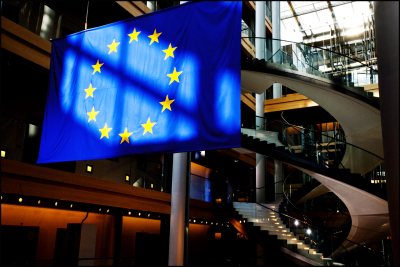New research on political integrity in 8 countries across the EU and the EU institutions1, released today by Transparency International, reveals alarming shortcomings in independent oversight of political party financing, conflicts of interest for public officials and lobbying.
The report, Debugging democracy: open data for political integrity in Europe, uses new research to explore asset and interest disclosure, political financing, and lobbying and reveals a patchwork of ineffective legislation across the region. Of the eight EU Member States and institutions surveyed, it was found that none have adequate measures to prevent undue influence on public policies and decisions.
Co-author Jon Vrushi, Research Coordinator at Transparency International Secretariat stressed: “Without strong integrity measures in place, political corruption threatens democracy and undermines people’s trust in their governments. We need to ensure policy-makers do not give special treatment to specific interests, distorting policies, institutions and rules to cater to the needs of the few instead of the many, and this can only be done through proper legislation.”
“Very few countries verify information declared by politicians and the EU should set the example” said Raphael Kergueno, a Policy Officer at Transparency International EU and one of the report authors, “It is extremely worrying, especially when we look at the European Parliament to find that almost 200 MEPS declare having paid side activities without any independent authority checking that these are not creating conflicts of interests” he continued.
One notable deficiency in most Member States is the lack of independent ethics and oversight bodies, which should be mandated to regulate the financial interests of public officials, the financing of political parties and of lobby activities.
The data for this research has also been released on national versions of Integrity Watch (see notes), however it is often of poor quality. Governments must provide this data in a useable format if they really want to encourage public participation.
[1] France, Greece, Italy, Latvia, Lithuania, the Netherlands, Slovenia and Spain, as well as datasets released by the European Commission and European Parliament.
Notes to editor
Integrity Watch is a series of online tools designed to empower citizens, journalists and civil society organisation to monitor political integrity in public institutions. The Integrity Watch Europe project has developed 7 new national Integrity Watch platforms and updated 2 existing ones, which resulted in 18 datasets analysed in this report.
This table shows all national versions of Integrity Watch platforms:
This project is cofunded by the European Commission and the Open Society Initiative for Europe (OSIFE), with a contribution by the King Baudouin Foundation (KBF). Neither the European Union institutions and bodies nor any person acting on their behalf may be held responsible for the use which may be made of the information contained therein.






